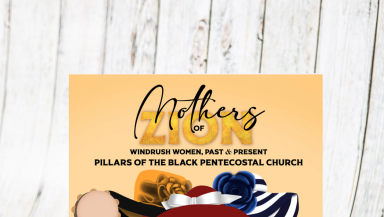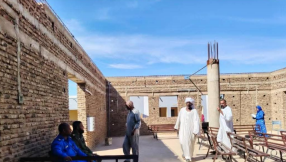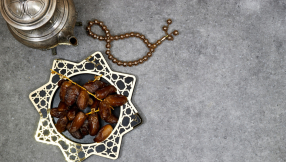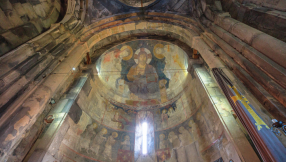
New book, Mothers of Zion, celebrates the faith filled and resilient women who assisted in building the black Pentecostal Church in the UK. The book, edited by Juliet Coley and her mother, Lilieth Coley-Wright, was birthed out of a desire to acknowledge the efforts of these Caribbean women of the Windrush generation.
Christian Today spoke with Juliet to uncover more about the Caribbean migrants' early years in the UK and the legacy these women left within the Pentecostal Church.
CT: What trials did the women face building the Pentecostal churches in a land that was foreign to them?
JC: I'm a Windrush child so I have first-hand experience of what it was like growing up in the Pentecostal Church. I remember being in church halls and they were quite smelly. People would be coming in with mops and buckets to clean out the church after a party from the previous night before we had Sunday service. I was told they found it difficult to rent halls. If you were doing a party it was fine, if you were a church they weren't interested.
They had to work, raise children, deal with racism and do their role within the church. If church women faced abuse in their marriages they had to live with it as divorce was frowned upon by the church. Mental health issues were experienced but viewed as a lack of resilience so women just sucked it up and got on with things.
CT: Just how influential were women to the formation of the black Pentecostal Church in the UK?
JC: Very influential, however, I don't think they were recognised for their contribution. The families of the women profiled in the book were in tears to see their mothers acknowledged. Their influence was very powerful because they were the busy bees doing the work. They would be cooking, making the choir outfits, and keeping the young people in check.
CT: Many of the Windrush generation experienced racism in Britain, including from churches. Did this inform the development of the Pentecostal Church here?
JC: Yes absolutely, it stopped them being complacent. A lot of the churches were in the front room. The front room was where many of our big churches started. The number of attendees grew and the neighbours complained so they moved into halls.
CT: In the opening of the book you write, "I smiled, laughed and my eyes overflowed with tears when reading the profiles of the amazing unsung heroes in this book." Was there a particular story that touched you?
JC: There were loads. Bishop John Francis' mum, Elfreda Elizabeth Francis, is featured in the book. She was diagnosed with terminal cancer and sent home to die. The congregation prayed for her and when she went back to the doctor they said they couldn't find the cancer; she was healed. Sometime after that she gave birth to John Francis, so if she did die from the cancer we would have no Bishop John Francis.
There was one mother who was the oldest Pentecostal preacher in the UK. She was still preaching at 95 years old during Covid. Her name was Mother Amy Williams. She was nominated for an MBE and her family received the notice by e-mail to visit the palace to collect it. The day they got that e-mail, she was taken into hospital and died which meant that she couldn't collect the MBE. That moved me because her family said her reward is the 'stars on her crown.'
I was proud to have been able to document with my mum these stories for the 75th anniversary of Windrush. A lot of the Windrush generation were being treated despicably by the government. We didn't just turn up on boats, we were invited and came on boats to help build this country after the Second World War.
CT: What valuable lessons did you learn when speaking to the women featured in the book?
JC: The legacy of the Caribbean is the backbone of the black community. Racism made their faith stronger and built resilience. The church community combatted loneliness by having each other to lean on. They had readymade babysitters with every friend or church sister. Marriage was sacred and people stayed together because of their faith. Skills like fundraising, cooking, baking and sewing were also passed down and used when it came to the choirs, weddings, christenings and celebrations.
CT: Where did the title 'Mothers of Zion' come from?
JC: My friend's mother had died, and I went to a thanksgiving service before the funeral. As we were sitting there, there was a picture of this lady and it had labelled on it 'Mother of Zion'. I sat there and listened to all the people who came up to speak about her. She was a great cook, she was a seamstress, she was someone that they could confide in. Basically she was a mother of Zion. I thought about all the women that I had grown up with who were just like that and that was really the inspiration.
CT: What reception has the book had since its release?
JC: It's been phenomenal. I didn't think it would be. For me, in the long term, the book is about legacy. I've had a great response. People have said it's been groundbreaking in a sense that these women's stories have never been told. It was written for a legacy purpose and not to sell thousands of copies. We did a Zoom launch because the mothers and the children are all over the world. We had close to 200 people on Zoom. We had the mothers speaking and their pastors also spoke. Some of the mothers in the book had an impact on their pastors' lives.
CT: The Pentecostal Church was a hub and community for black Caribbean migrants. A home away from home. Would you say this culture has changed within the Pentecostal Church today?
JC: I think it's changed. I think that a lot of the children of the Windrush generation felt their parents were quite strict so when they had their children they did not raise them with the kind of discipline the mothers of Zion exercised. When I went into teaching I was horrified at the next generation I was teaching because their values were not the same values I was raised with.
Some of the younger generation have chosen not to be as traditional in terms of the upbringing of their children. After my mum came here we adopted all the values and the norms of the Caribbean culture. They were quite rigid but they were good for us being raised in a British society with British norms and British culture. A lot of generations after me view the Windrush values as old-fashioned and as such the church does not pay an integral role within their lives.
CT: A lot of the mothers mentioned in the book went on to have great-grandchildren. What do you think the Pentecostal Church will look like over the generations to come, especially as Britain becomes increasingly secular?
JC: Although we are adapting and slightly changing, the Word is still the same, God is still the same, and the message is still the same. As long as that doesn't change the Pentecostal Church will go on to be strong and more vibrant. I see that the elderly people are not the majority anymore, which is a good thing. We are getting more young people coming. If we continue to uphold the values and the Word doesn't change, I think the Pentecostal Church will live on and on and on.













